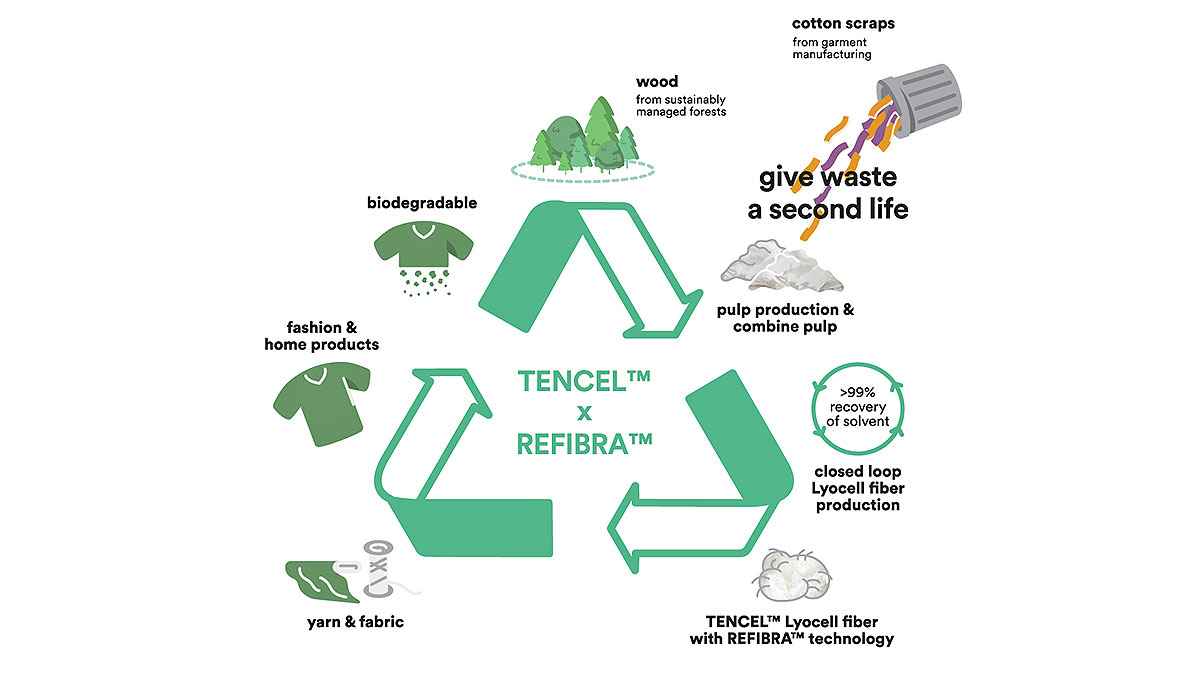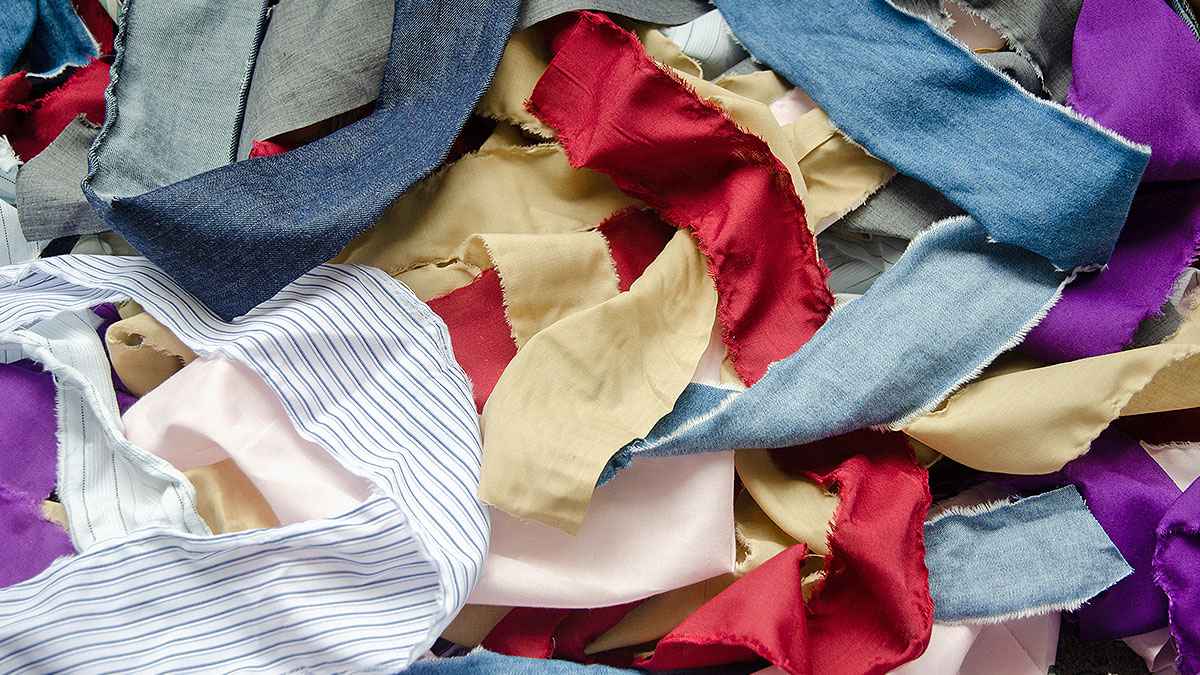
Lenzing Group (Lenzing) announced a new milestone for its pioneering Lenzing REFIBRA technology with an increase of up to 30% in recycled raw materials usage to further drive circular economy in the textile segment. The new offering is now available in the family of TENCEL™ Lyocell fibres with low fibrillation properties.
Produced in eco-responsible closed-loop production process, the new fibres are 100% biobased, and are produced of wood pulp from sustainably managed forests and an increase of up to 30% of pulp made from upcycled cotton scraps collected from garment manufacturing process. In addition to having low fibrillation and moisture management properties, the fibres also feature enhanced breathability, along with silky smoothness and strength. With the new fibre type, the portfolio of TENCEL™ Lyocell fibres with REFIBRA™ Technology will be expanded to become the ecologically responsible alternative for knitwear, lingerie and towels, in addition to current applications in denim, athleisure wear, apparel and home textiles.
Demand for sustainable materials increases in textile
Florian Heubrandner, Vice President of Global Business Management Textiles of Lenzing, said that over the years, they have witnessed a rise in the global demand for more sustainable materials among fashion and home product brands and consumers. “Through raising recycled raw material usage to up to 30% in our pioneering REFIBRA™ Technology, we are not only addressing this inevitable trend, but also providing more nature-friendly fibre offerings to brands and consumers as a testament to our commitment to protecting the environment,” said Heubrandner and continued saying;
“The higher composition of upcycled cotton in the production of our fibres powered by REFIBRA™ technology; gives cotton scraps a second chance and allow apparel or home textile products to be more sustainable. Coupled with a new identification system that allows fibres powered by REFIBRA™ technology; to be identified in clothing and textile products; we can provide full transparency of the supply chain for brands and consumers; giving them a seal of confidence that the products are made of sustainable fibres. Moving forward; we will continue to up the game for the innovation of sustainable fibres and pave the way for circular economy in the textile industry ecosystem,”
Lenzing REFIBRA technology fibres have a %99,5 recycle rate
With low fibrillation properties, the new fibres are proven to remain smooth and gentle on skin after repeated wash. Like other TENCEL™ Lyocell fibres with REFIBRA™ Technology; the fibres divert tons of cotton scraps from entering landfills or incineration; by blending up to 30% of pulp made from upcycled cotton scraps; collected from garment manufacturing process. The biobased fibres are also produced with high resource efficiency; and low environmental impact, reusing water and solvent at a recovery rate of more than 99.5 %.
Moreover, with an innovative special identification technology designed to confirm fibre origin; TENCEL™ Lyocell fibres with REFIBRA™ Technology are identifiable in yarns, fabrics and final garments. This does not only improve supply chain transparency; but also gives fashion brands a seal of confidence; that the fibres of their apparel or home textile products are sustainably sourced and produced.


